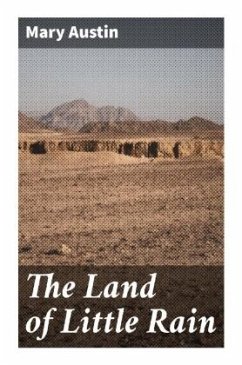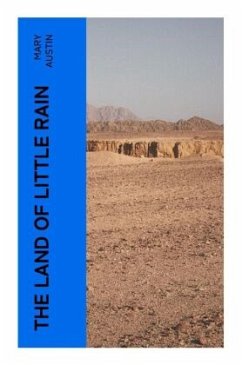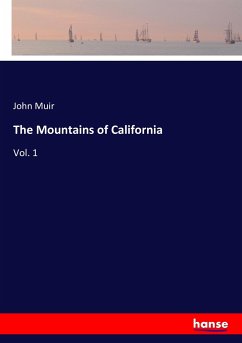
The Mountains
Versandkostenfrei!
Versandfertig in 6-10 Tagen
8,49 €
inkl. MwSt.

PAYBACK Punkte
4 °P sammeln!
Stewart Edward White's "The Mountains" is a striking exploration of the American wilderness, weaving together vivid descriptions of the Sierra Nevada's natural beauty and the profound insights garnered from a life spent in harmony with nature. The narrative captures the spirit of early 20th-century exploration literature, as it seamlessly blends adventure with reflective prose. White's masterful use of descriptive language immerses readers in the landscape, inviting them to experience the majestic mountains and the raw thrill of outdoor life. This work is a testament to the transcendentalist t...
Stewart Edward White's "The Mountains" is a striking exploration of the American wilderness, weaving together vivid descriptions of the Sierra Nevada's natural beauty and the profound insights garnered from a life spent in harmony with nature. The narrative captures the spirit of early 20th-century exploration literature, as it seamlessly blends adventure with reflective prose. White's masterful use of descriptive language immerses readers in the landscape, inviting them to experience the majestic mountains and the raw thrill of outdoor life. This work is a testament to the transcendentalist tradition, echoing the sentiments of writers like John Muir and Henry David Thoreau, while incorporating White's personal anecdotes that underline the human connection to nature. Stewart Edward White, a prominent American author and adventurer, drew upon his extensive outdoor experiences to enrich his narratives. Born in 1872, his upbringing in a culturally diverse environment fostered an enduring love for storytelling and outdoor exploration. He also gained recognition as a pioneer in combining personal narrative with fictional elements, which informs his work in "The Mountains." His profound appreciation for nature not only influenced the book's creation but also served as a broader commentary on the role of wilderness in American identity. "The Mountains" is highly recommended for readers who cherish explorations of the natural world, as well as those interested in early American literature's reflections on nature. White's contemplative prose resonates with modern-day themes of environmental conservation and the quest for self-discovery in nature. This book will surely enrich readers' understanding of both the majestic American landscape and the intricate relationship between humanity and its environment.












